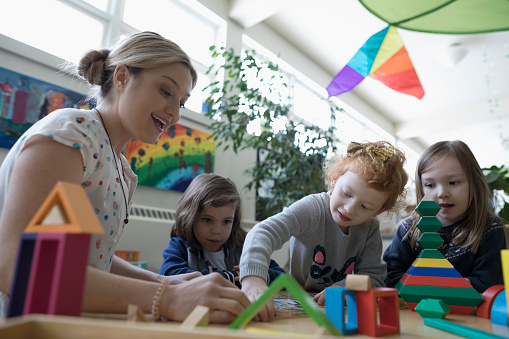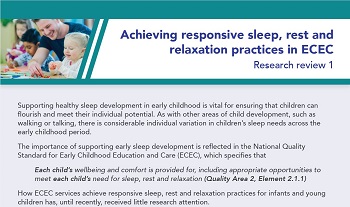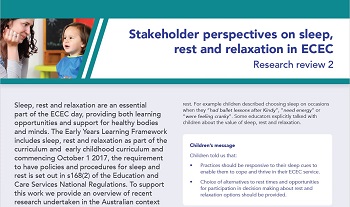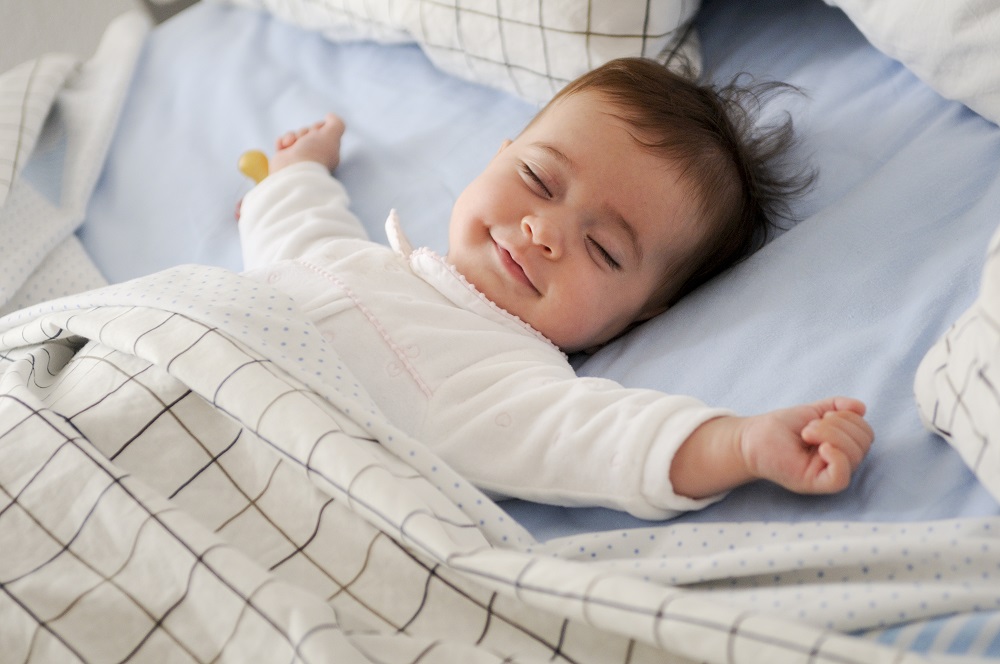Innovations and learning futures
Working with Social Ventures Australia to help great practice become common practice in education
 ISSR has been working with Social Ventures Australia to conduct a systematic review of the Australasian literature and develop oral language resources as part of the Evidence for Learning (E4L) Early Childhood Education Toolkit.
ISSR has been working with Social Ventures Australia to conduct a systematic review of the Australasian literature and develop oral language resources as part of the Evidence for Learning (E4L) Early Childhood Education Toolkit.
Rewarding commitment to attend school: A field study with indigenous Australian High School students
 There is clear evidence of a significant gap in education achievement between Indigenous and non-Indigenous Australians, with the Australian Government introducing its ‘Closing the Gap’ policy in 2008 partly to address inequality in education.
There is clear evidence of a significant gap in education achievement between Indigenous and non-Indigenous Australians, with the Australian Government introducing its ‘Closing the Gap’ policy in 2008 partly to address inequality in education.
Policy brief: Achieving responsive sleep, rest and relaxation practices in ECEC
 Supporting healthy sleep development in early childhood is vital for ensuring that children can flourish and meet their individual potential. As with other areas of child development, such as walking or talking, there is considerable individual variation in children’s sleep needs across the early childhood period.
Supporting healthy sleep development in early childhood is vital for ensuring that children can flourish and meet their individual potential. As with other areas of child development, such as walking or talking, there is considerable individual variation in children’s sleep needs across the early childhood period.
The importance of supporting early sleep development is reflected in the National Quality Standard for Early Childhood Education and Care (ECEC), which specifies that "[each] child’s wellbeing and comfort is provided for, including appropriate opportunities to meet each child’s need for sleep, rest and relaxation (Quality Area 2, Element 2.1.1)"
Policy brief: Stakeholder perspectives on sleep, rest and relaxation in ECEC
 Sleep, rest and relaxation are an essential part of the ECEC day, providing both learning opportunities and support for healthy bodies and minds. The Early Years Learning Framework includes sleep, rest and relaxation as part of the curriculum and early childhood curriculum and commencing October 1 2017, the requirement to have policies and procedures for sleep and rest is set out in s168(2) of the Education and Care Services National Regulations. To support this work we provide an overview of recent research undertaken in the Australian context documenting the perspectives of children, parents and educators.
Sleep, rest and relaxation are an essential part of the ECEC day, providing both learning opportunities and support for healthy bodies and minds. The Early Years Learning Framework includes sleep, rest and relaxation as part of the curriculum and early childhood curriculum and commencing October 1 2017, the requirement to have policies and procedures for sleep and rest is set out in s168(2) of the Education and Care Services National Regulations. To support this work we provide an overview of recent research undertaken in the Australian context documenting the perspectives of children, parents and educators.
Achieving Responsive Sleep, Rest and Relaxation Practices
 E4Kids is a five-year longitudinal study designed to assess the impact of everyday, approved ECEC programs on children’s learning and developmental outcomes. Originally operating out of the Queensland University of Technology, Professor Karen Thorpe led a team via E4Kids to conduct the first large-scale observational studies of sleep practices in ECEC environments. The team investigated the effectiveness of sleep, rest and relaxation practices within more than 180 kindergarten, long day care and family day care settings, including more than 3000 children (from birth to five years).
E4Kids is a five-year longitudinal study designed to assess the impact of everyday, approved ECEC programs on children’s learning and developmental outcomes. Originally operating out of the Queensland University of Technology, Professor Karen Thorpe led a team via E4Kids to conduct the first large-scale observational studies of sleep practices in ECEC environments. The team investigated the effectiveness of sleep, rest and relaxation practices within more than 180 kindergarten, long day care and family day care settings, including more than 3000 children (from birth to five years).
